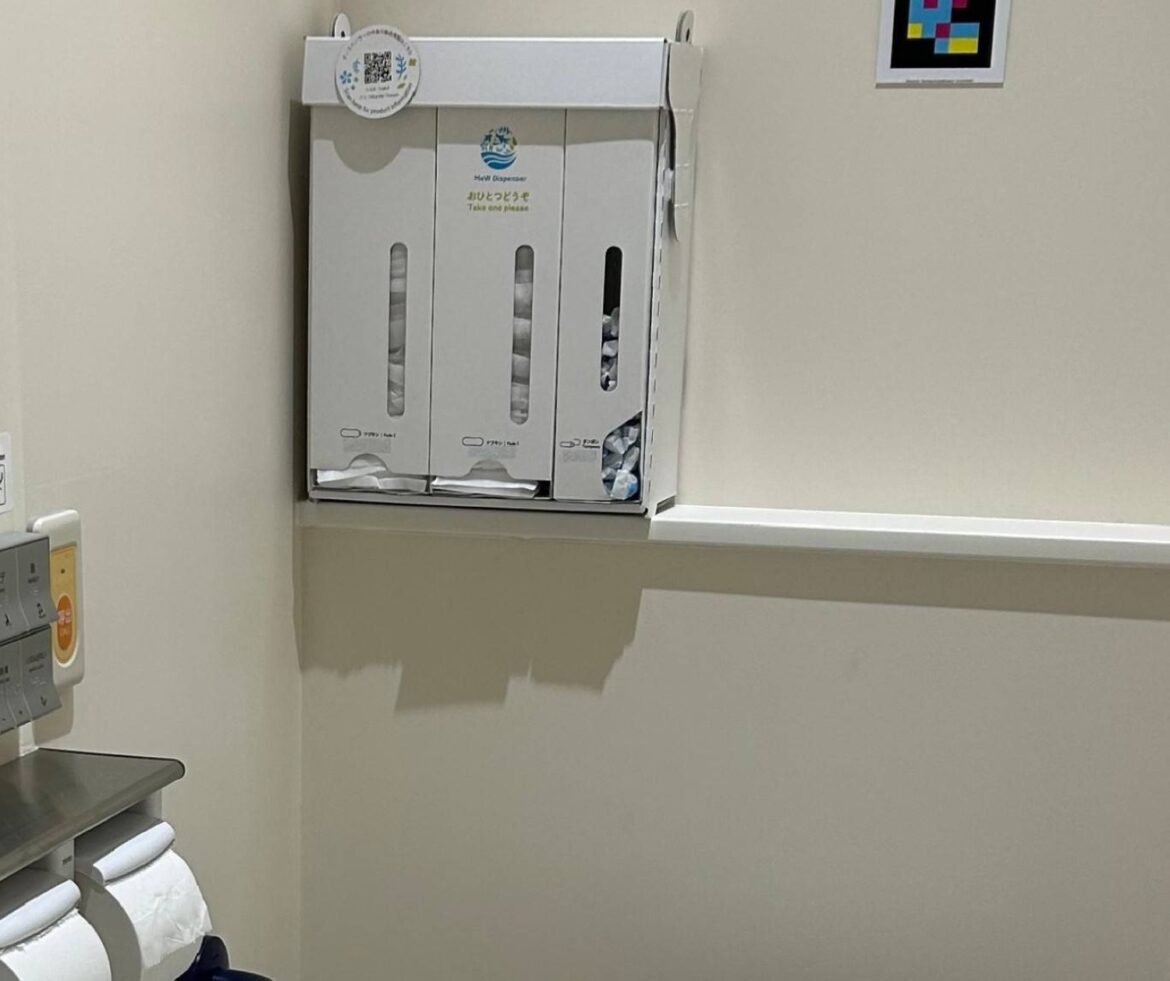Visitors to the Osaka Expo can now access free menstrual products in several restrooms across the venue, as part of an initiative by faculty and students from Osaka University.
The group, known as the MeW Project from the university’s Graduate School of Human Sciences, has installed cardboard dispensers in nine women’s restrooms across pavilions. The devices, developed by the team, allow visitors to freely take sanitary pads and other menstrual products. Supplies are regularly restocked, and the initiative is funded by donations from corporate sponsors.
The project began in 2021 when the group placed its first dispenser in a campus restroom. It aims to make menstrual products as commonplace as toilet paper in public restrooms. Users have responded positively, with one saying, “It felt like someone empathized with the pain of menstruation.”
The initiative has since expanded to include about 5,000 dispensers installed in schools and municipal facilities nationwide. After last year’s Noto Peninsula earthquake, students also delivered menstrual supplies to evacuation centers.
Expo visitors have welcomed the effort. “It was a lifesaver when my period came suddenly,” one said. Another remarked, “This feels like the restroom of the future.” Still, organizers acknowledged issues such as products being depleted in large quantities.
In April, the group also hosted a symposium on menstruation-related challenges at the Expo’s Women’s Pavilion. Elli Sugita, project founder and professor of developmental anthropology at Osaka University’s Graduate School of Human Sciences, said, “The notion that menstruation is something to hide has taken root in society. It’s vital that everyone has accurate knowledge about it.”
Public concern over “period poverty,” or difficulty accessing products due to financial hardship, grew during the pandemic. Sugita stressed that the issue must not fade from attention.
“Menstrual products are essential items that protect life and health,” she said. “This is not just a women’s issue, but a challenge for society as a whole.”
Translated by The Japan Times


AloJapan.com